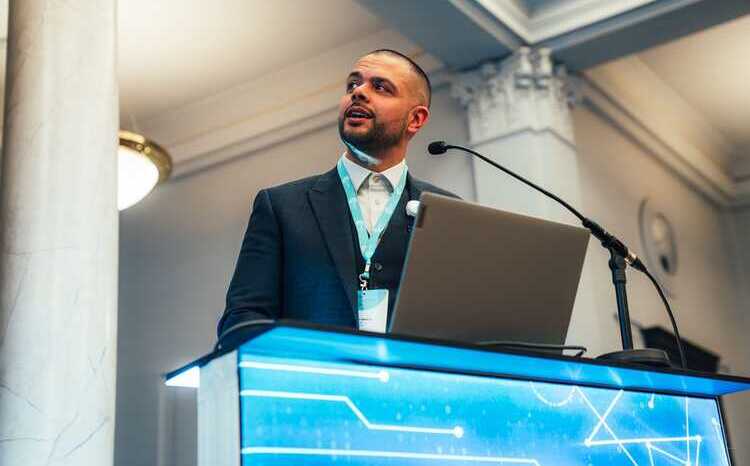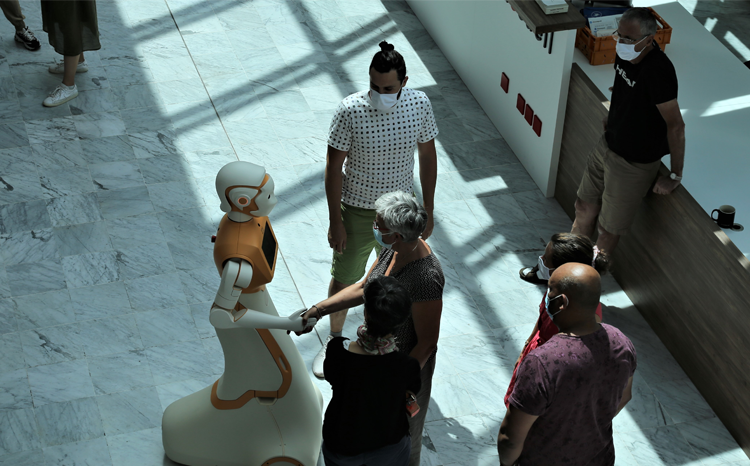The tech revolution is coming, and the NHS needs to be ready
- 30 April 2018

As Dr Eric Topol commences his review into the training needs of NHS staff and how can they leverage artificial intelligence, genomicsotics and other technologies to improve care, Stephen Barclay, minister of state for Health and Social Care, says it is important that NHS is “future-fit” to embrace the technological revolution.
Aided by the rapid advance of new technologies, there is something profound happening within modern medicine – we are starting to digitise the science of human health. Sophisticated smartphone apps are being used to continuously monitor a patient’s vital signs, opening up new ways of managing long term conditions such as diabetes.
Artificial intelligence is revolutionising diagnostics, with machine learning technologies set to improve the accuracy and speed of diagnosis, as is already underway at Moorfields Hospital.
Developments in medical imaging technologies, driven by the UK’s vibrant life sciences sector, are helping to bring the diagnostic arsenal of a hospital out into the community, while robotics and augmented reality technology is similarly delivering profound changes in surgical practice.
Most significant of all, the development of genomic science, supported by our world-leading 100,000 Genomes Project, is poised to transform our understanding and treatment of rare or hereditary diseases.
Digital transformation
Every decade has its own defining achievements within medical science. For a country that invented antibiotics, hip replacements and IVF, quantum leaps forward in NHS treatments and technologies are not new per se.
But what is different about these latest advances is the sheer breadth of potential change. There’s not a single professional group or specialism within the NHS that will be untouched by the way digital technologies shape their work over the next decade or two.
From understanding the algorithms and analytical tools necessary to process big data sets, to the management challenges of information governance and data protection, as well as the highly specialised training to use new forms of equipment, these will mean equipping teams with a new set of skills and knowledge, as well as potentially creating new professional roles.
It will also, in some cases, shift the way the NHS provides care – most obviously in the increasing use of online consultations and remote monitoring of long term conditions – meaning that clinicians will need to have confidence to maintain patient relationships through different media and support patients’ abilities to self-manage care.
Some technologies may also open up potentially difficult ethical questions that the skilled professional will need to manage in discussion with their patients.
New skills needed
All of this points to a capability challenge. We need to make sure NHS staff are equipped with the skills and knowledge they need to unleash the full, transformative potential of these new technologies, many of which simply were not in existence when many parts of the current workforce were in training. That is why we have asked the renowned American academic and technologist Dr Eric Topol to deliver a landmark review into the workforce implications of new technology.
Dr Topol’s study will cover the full span of technological change, drawing in support from established experts to forecast the potential skills that will be needed and how best to build capability across the NHS workforce. His findings will inform the workforce strategy that Health Education England are developing.
Much of the current debate about workforce focuses on the numbers – in other words, making sure that we address the recruitment and retention issues facing the NHS, which we are doing by increasing medical training places.
This is clearly a profoundly important issue – nobody would deny that we need more doctors and nurses. Yet just as important is producing doctors and nurses with the right skills set to practice modern medicine.
Dr Topol’s review, which we believe is the first of its kind in the world, will help us answer that challenge in a definitive way. In its 70th year, it is part of our commitment to make sure that the NHS is “future-fit” and ready to embrace the technological revolution now underway across the medical world.
Stephen Barclay is minister of state for Health and Social Care.





2 Comments
Hmm. It might help to stop raiding tech budgets if you are serious about the NHS being future fit. Also, I’m pretty sure that a roundtable with a few of the top bods will help complete 80% of the report, but hey it’s about time for another report to wave around. And you can then raid the resultant dedicated fund you announce to your heart’s content!
Quite right. I’m still searching the ‘net for actions arising from the Wachter report and another NHS It report promising ‘we will ….’ do actions by the dozen. They seem to follow the mantra ‘If things aren’t going well, commission a (preferably large) report’. The NHS do not seem to realise that most of their processes are either broken or non-existent and applying ‘gee whiz’ technology just speeds up the deficiencies they are trying to rectify.
Comments are closed.